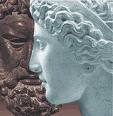 Writing and blogging and talking in interviews about my new novel this week, I keep encountering the same question: What inspired it? There are many answers to this, of course, and I’ve talked in different places about various sources for the story. But the deepest reasons are hard to articulate. So I decided to write about them here.
Writing and blogging and talking in interviews about my new novel this week, I keep encountering the same question: What inspired it? There are many answers to this, of course, and I’ve talked in different places about various sources for the story. But the deepest reasons are hard to articulate. So I decided to write about them here.
At first it looked like every mother’s worst nightmare: Several weeks ago a 36-year-old mother of two, driving her own kids and three nieces home from a camping trip in her Ford Windstar minivan, went the wrong way on the Taconic Parkway and crashed head-on into an SUV carrying three men. Everyone died except the woman’s five-year-old boy. At the funeral, mourners wept when the woman’s brother, the father of her nieces, sobbed, “Love your children. Cherish your children. Kiss your children.”
It appeared to be a tragic accident. This woman entered the highway from an exit ramp, and, apparently disoriented, drove 1.7 miles before the crash. She’d called her brother from a rest stop an hour before, the papers said, complaining of fatigue and sounding confused. A police officer speculated that maybe she thought she was in the slow lane on the correct side of the road; others suggested that perhaps she was on prescription drugs that impaired her judgment. Or maybe she was exhausted from being on a camping trip with all of those children, or distracted by their bickering or crying.
But as it turns out, the woman was drunk. Not just drunk — she was blind drunk, with twice the legal limit in her bloodstream and fresh alcohol in her stomach. A bottle of vodka was found in the car and she tested positive for marijuana.
How could this happen? Specifically, how could this woman ingest alcohol and drugs, knowing that she was responsible for the lives of five children — not to mention any strangers who got in her path? Why didn’t she pull over? Her recklessness suggests that she may have been suicidal. But it’s one thing to take your own life, and quite another to put others at such appalling risk.
And there are other questions: What did she actually say to her brother at the rest stop? Did he, or her husband, know she’d been drinking or smoking pot? Had there been an argument? Did she have a drinking problem; had she ever done anything like this before?
These questions, prurient as they may be, matter to us because we want to make sense of the unthinkable. And I think they’re particularly resonant for mothers. This woman’s behavior at the furthest edges of comprehension. And yet every mother I know has feared her own capacity – through accident or neglect or worse – for doing harm to her child.
When my first child was born I joined a group of new mothers, and we joked with the blackest of humor about exactly these fears. One woman said that late at night, lying in bed, waking nightmares would come unbidden about the things that she might do wrong: what if, what if, what if. Another read shaken-baby stories obsessively, worried about her own impatience and anger at her colicky child. Yet another admitted that post-partum depression had once rendered her apathetic and unresponsive, more concerned with her own needs than those of her (neglected) child. I admitted that I was terrified of getting in a car crash that was my own fault and being responsible for maiming, or killing, my child or – god forbid – someone else’s.
This quiet terror propelled me into writing my new novel, Bird in Hand. I began to tell the story of a woman, a mother, who has several drinks and gets into an accident in which a child dies. As I started writing, though, I found that it was like staring directly into the sun; I had to squint and turn away. I put the manuscript in a drawer and only came back to it after several years, when my children were older and my own fears had subsided. And I changed the focus of the novel: the accident became a catalyst for the larger story rather than the story itself.
Writing this book was a way of exploring my deepest fears around this subject. I wanted to follow my character through her grief and guilt to some place on the other side. In Sophocles’ Oedipus at Colonus, Antigone says, “Now the finish comes, and we know only in all that we have seen and done bewildering mystery.” I wasn’t looking for answers, only for a way to comprehend the mystery.
Like Greek tragedy, the terrible accident last week goes straight to the darkest places within us. It makes manifest our deepest fears, vividly revealing what the unimaginable looks like. What if, what if, what if.
